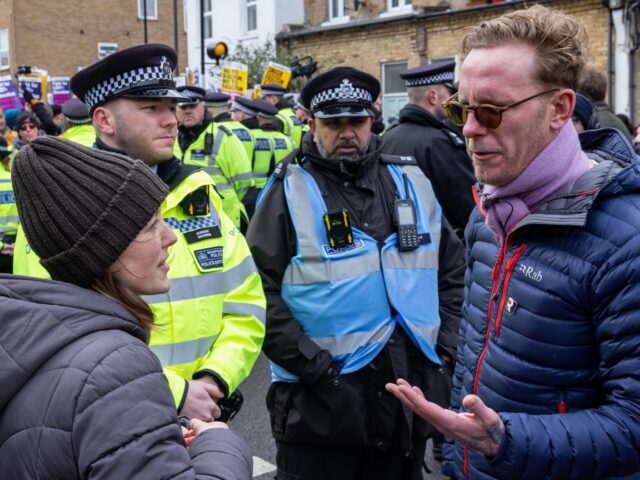In a small step towards protecting freedom of speech, British Home Secretary Suella Braverman has issued guidance demanding that police do not record so-called ‘non-crime hate incidents’ in cases in which someone was merely offended by another citizen’s language.
In guidance issued on Monday, Suella Braverman said that British police should seek to uphold the tenets of free expression rather than indulging the offended.
Over the past several years over 120,000 Britons have had their details put into police databases for making supposedly offensive statements, which although, as the name would imply, do not rise to the level of actual crimes, can still be visible on police background checks should a prospective employer make such an inquiry. The practice of recording non-crime hate incidents has also sapped policing resources evidently badly needed elsewhere, given the rising tide of crime hitting the United Kingdom.
Under the new guidance, police are told that they should “only record non-crime hate incidents when it is absolutely necessary and proportionate and not simply because someone is offended. The measure will better protect people’s fundamental right to freedom of expression as well as their personal data.”
Explaining the rationale for the decision to publish guidance to disincentivise police forces from engaging in grievance politics, Home Secretary Suella Braverman said: “I have been deeply concerned about reports of the police wrongly getting involved in lawful debate in this country.
“We have been clear that in recording so-called non-crime hate incidents, officers must always have freedom of expression at the forefront of their minds. The new code will ensure the police are prioritising their efforts where it’s really needed and focusing on tackling serious crimes such as burglary, violent offences, rape and other sexual offences.”
The new Home Office document cited other “trivial” instances, including a man from Bedfordshire who was recorded in the database for whistling the theme song of the children’s programme Bob the Builder at his neighbour, who called the police because he thought it was a racial taunt.
In another notable instance, Hampshire Constabulary was criticised after being revealed by the star of the Breitbart original film My Son Hunter, Laurence Fox for arresting a British Army veteran at his home for sharing a meme mocking the authoritarian nature of modern LGBTQ+ ideology. The local Conservative Police and Crime Commissioner was later forced to admit that arresting people for what they say online should not be the top priority of police when burglaries are going unsolved.
The guidance for the College of Policing comes after the Court of Appeal ruled in 2021 that police had acted unlawfully for recording a non-crime hate incident in relation to former police officer Harry Miller for jokes he made on social media about transgenderism.
One post from Miller read: “I was assigned mammal at birth, but my orientation is fish. Don’t mis-species me,” which was apparently enough for police to record in their database and to personally warn Miller to “check his thinking”.
Responding to the move from Braverman to limit non-crime hate incident recordings, Miller wrote on social media: “This is a massive day. Everything we hoped for, worked for, fought for over four long years has now been achieved. Common sense is back on the table. And the police are back on the leash.”
Laurence Fox said that it’s a “step in the right direction”, however, he warned that woke police forces will just use criminal legislation to enforce their politically correct agenda, saying: “they want to police your speech with every part of their being.”
Indeed, while the new guidance has been celebrated by some for standing up for free speech, the government could have theoretically eliminated the category altogether.
During its thirteen years in power, the Conservative Party has also refused to repeal hate speech codes instituted under the left-wing globalist government of Tony Bair such as Section 127 of the Communications Act 2003, which criminalises being “grossly offensive” or intentionally causing “annoyance, inconvenience or needless anxiety to another”.
Follow Kurt Zindulka on Twitter here @KurtZindulka

COMMENTS
Please let us know if you're having issues with commenting.